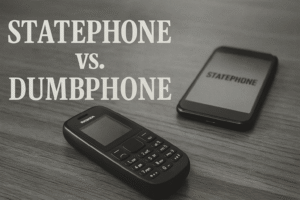
When Sir Mark Rowley, Commissioner of the Metropolitan Police, calls for Parliament to change the law so officers no longer need to arrest people for words, it sounds like a reasonable plea. After all, most of us don’t want police officers spending their days chasing down bad jokes on social media.
But here’s the uncomfortable truth: much of the so-called “policing of speech” isn’t driven by Parliament at all. It’s driven by the police themselves.
From Macpherson to Policy Creep
The roots go back to 1999 and the Macpherson Inquiry into the racist murder of Stephen Lawrence. The report recommended that the police take racist incidents seriously, whether or not they rose to the level of a crime.
That was a fair and necessary correction at the time. The Lawrence case exposed deep failures, and change was overdue.
But what followed was something very different.
- The Association of Chief Police Officers (ACPO) introduced national guidance in 2000.
- The Home Office supported it.
- The College of Policing turned it into official guidance in 2014.
The result? The creation of Non-Crime Hate Incidents (NCHIs) — records of speech or behaviour perceived as hostile, even if no crime has taken place.
The Contradiction
Here’s where the problem lies:
- NCHIs are not laws passed by Parliament.
- They are in-house police policies.
- Yet, they can still appear on an enhanced DBS check, affecting people’s careers and reputations despite no crime being committed.
So when the Met Chief says his officers need the law changed, he’s half-right and half-wrong. The bigger truth is that the police invented this system themselves. They could stop recording NCHIs tomorrow if they chose. No Act of Parliament is required.
Passing the Buck
By calling for a law change, senior officers are really asking politicians to give them political cover. If government narrows the definition of hate crime or limits NCHI recording, police leadership can retreat without being accused of ignoring hate.
But make no mistake: the current state of affairs — where lawful speech can be logged like a crime — is not something MPs foisted on the police. It’s something police leadership built, step by step, from 1999 onwards.
Where the Finger Points
Yes, Parliament could and should clarify the law. But the immediate responsibility sits squarely with policing institutions themselves. They created NCHIs. They expanded their scope. They chose to treat perception as fact.
If the Met Chief is serious about ending the policing of words, he doesn’t need to wait on Westminster. He can start by scrapping his own force’s in-house rules that go beyond the law.
Final thought
It began with the good intention of ensuring racism was never ignored. It has ended with a system that records jokes, opinions, and lawful speech as if they were crimes. That isn’t justice. That’s bureaucracy gone rogue.
The finger should be pointed clearly where it belongs: at the police leadership who created the problem, not just at Parliament.
“Hope isn’t what they promise you. It’s how you carry on when they don’t deliver.” — Dave Carrera



